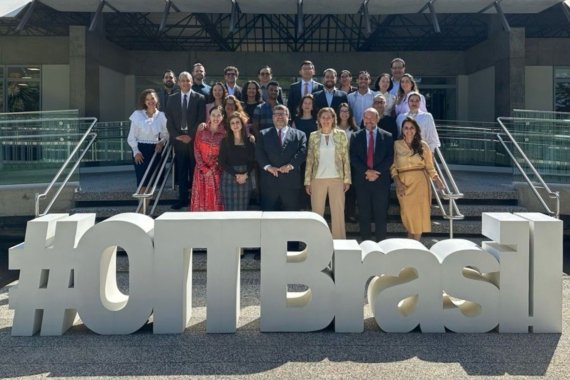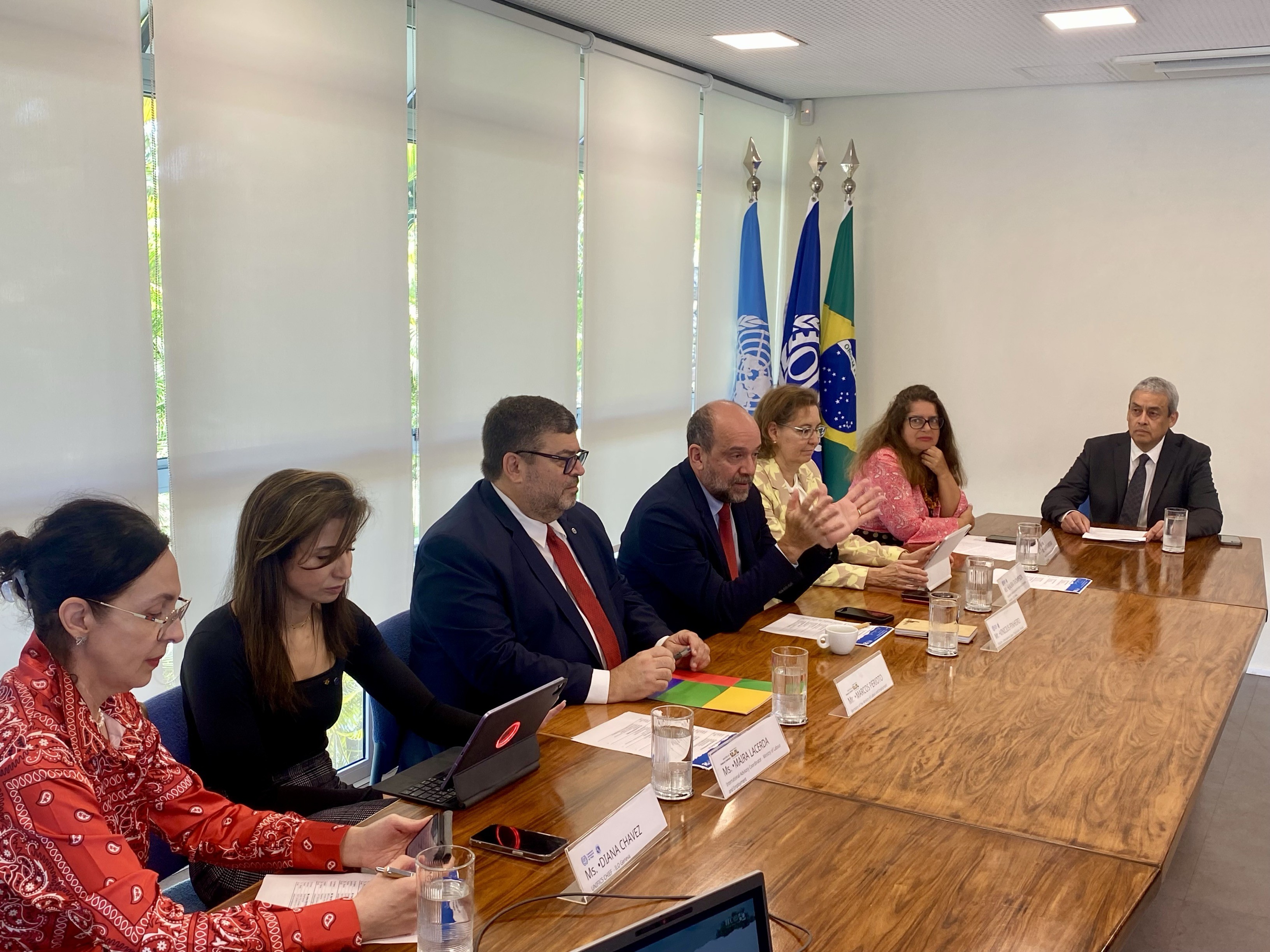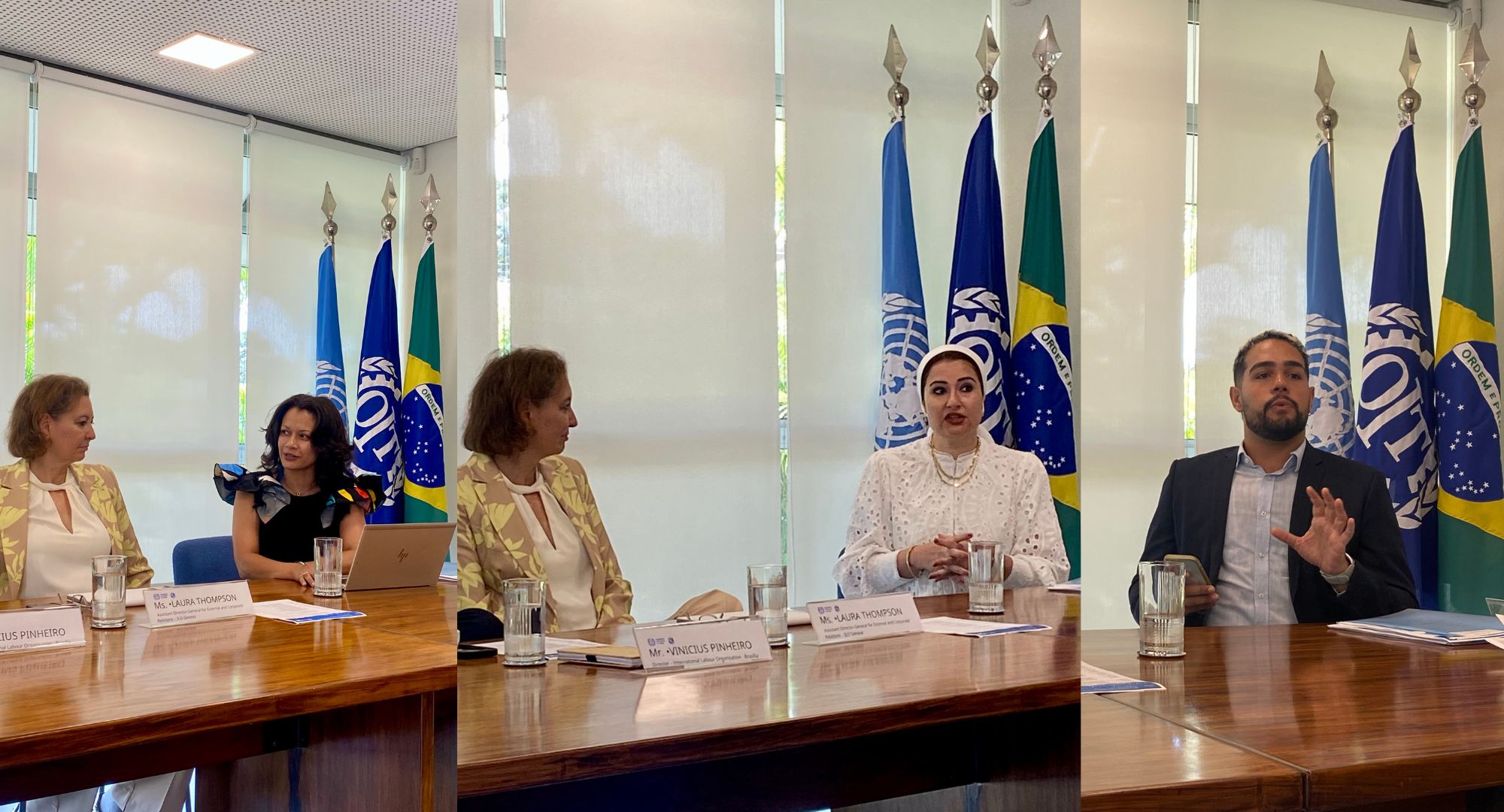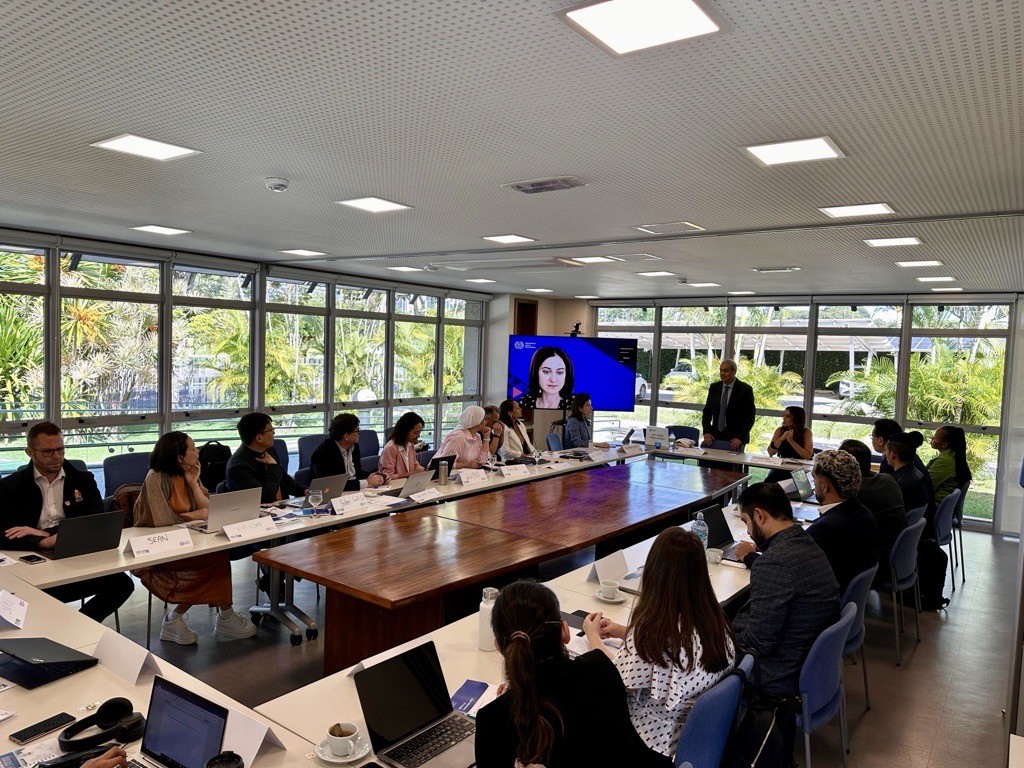BRICS+ Innovators Convene in Brasilia to Envision Job-Rich, Technologically Driven Just Transitions through South-South Cooperation
BRICS+ Innovators Convene in Brasilia to Envision Job-Rich, Technologically Driven Just Transitions through South-South Cooperation
09 May 2025

From April 22 to 24, the ILO Office for Brazil hosted the BRICS Emerging Technologies and New Frontiers for Employment for Just Transitions – DEVTECH / PARTNERSHIPS South-South Knowledge-Sharing Event. Implemented within the framework Brazil’s 2025 BRICS Presidency, the event was made possible with support from ILO PARTNERSHIPS and it was co-organized by the Ministry of Labour of Brazil, ILO PARTNERSHIPS and the Development Investment (DEVINVEST) Programme of the International Training Centre of the ILO (ITCILO).
The three-day event explored the transformative potential of digital technologies—including artificial intelligence, biotechnology, renewable energy technology, and data analytics—for job creation, especially in rural economies. The event brought together over 20 experts, government officials, researchers, and development practitioners from BRICS+ countries to exchange knowledge and explore avenues for South-South Cooperation in support of job-rich, technologically driven just transitions for the world of work.
Carlotta Clivio from the ITCILO DEVINVEST programme designed the instructional space in which BRICS+ participants engaged in group work, case study analyses, and interactive sessions to: envision ideal future scenarios to foster the growth of decent work opportunities in rural economies; identify emerging technologies with the potential to generate decent work opportunities for all; analyse macro-trends which may disrupt the actualization of job-rich, technologically-driven just transitions; propose feasible countermeasures to said disruptive macro-trends; identify capacity development needs which may support such initiatives; explore good practices being already implemented in BRICS+ countries and the broader space of multilateralism; develop twinning partnership proposals for the strengthening of South-South cooperation on just transitions.
In closing of the training, participants shared their findings and presented the tentatively developed twinning initiatives to Joel Alcocer, Programme Manager at the ITCILO DEVINVEST Programme; Anita Amorim, Head, Special and Emerging Partnerships Unit (ESPU) at ILO PARTNERSHIPS and Fernanda Barreto, Coordinator, South-South Cooperation and Strategic Associations, ILO Office for Brazil. They received real-time feedback on the relevance, feasibility and sustainability of each twinning initiative, and were encouraged to continue giving all projects shape beyond the scope of the Knowledge-Sharing event.
On April 24, in closing of the event, participants joined a high-level session opened by Brazilian Secretary of Labour relations Marcos Perioto, ILO Assistant Director General Laura Thompson, BRICS Employment Working Group (EWG) Chair Maíra Lacerda, ILO Office for Brazil Director Vinicius Pinheiro, ILO Partnerships ESPU Head Anita Amorim, ILO Partnerships UNIFICS Head Diana Chávez, and ILO Office for Brazil Coordinator for South-South Cooperation and Strategic Partnerships Fernanda Barreto. The event was held in conjunction with the opening of the BRICS Technology and South-South and Triangular Cooperation Knowledge Sharing Platform on Artificial Intelligence and the World of Work, on the eve of the 11th BRICS Labour and Employment Ministers’ Meeting.
This latter event emphasized the urgent need for human-centred digital transformation in rural areas, where disparities in access to technology risk widening existing social and economic divides. With a focus on South-South and Triangular Cooperation (SSTC), the event underscored how developing countries can co-design and implement solutions by leveraging shared experiences and capacities.

ILO Assistant Director General Laura Thompson highlighted its recently launched Artificial Intelligence Observatory, which aims to:
- Serve as a global knowledge hub on the world-of-work dimensions of AI and the digital economy;
- Support governments and social partners in navigating the digital transformation of work;
- Conduct research and organize events to advance ethical, inclusive and rights-based innovation.
“In the spirit of South-South and Triangular Cooperation—as a strategic platform for collaboration among equals—BRICS countries are well-positioned to drive people-centred innovation and ensure no one is left behind,” said ADG Thompson. “Emerging technologies must work for everyone, especially the most vulnerable through South-South peer learning”.
Anita Amorim and Diana Chávez, ILO PARTNERSHIPS, welcomed participant proposals as presented by Carmen-Joy Abrahams, Deputy Director-General, EPWP, Department of Public Works and Infrastructure, South Africa; Vitor Costa, Assistant Researcher at the PUC-RIO BRICS Policy Centre, and Yomna Eid Amer Elfeky, Sawiris Foundation for Social Development.

Key takeaways and proposals from this South-South initiative were formally presented to the BRICS Employment Working Group, providing inputs to the upcoming Declaration of the 11th BRICS Labour and Employment Ministers’ Meeting.
ITCILO DEVINVEST Programme Manager Joel Alcocer reiterated institutional commitment to supporting BRICS+ countries in implementing these recommendations and fostering inclusive digital transitions in labour markets across the Global South.

Knowledge-Sharing Event participants from BRICS+ academic institutions joined as part of the "Future of Work" South-South and Triangular Cooperation University Network, jointly launched with ILO PARTNERSHIPS. To learn more, academic focal points interested in how to join the University Network are welcome to contact the INTEGRŌ facility for future leaders in the world of work at: integro@itcilo.org.